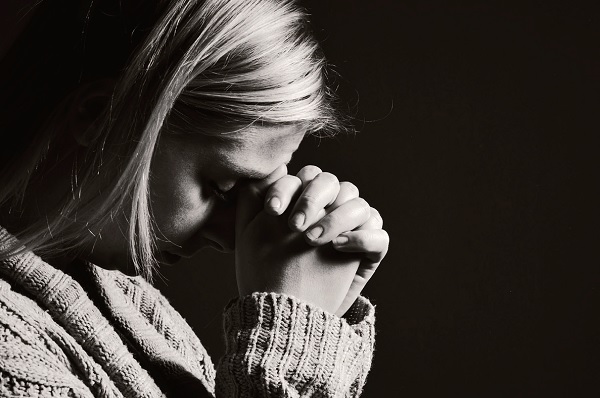Does godliness mean staying in an abusive marriage?

Divorce is one of the causes of single parenthood. Being a single parent is hard enough, and divorce can be very sad. Examining the reasons for divorce can help us and single parents who have experienced marital pain truly become loving brothers and sisters in the Lord.
"Many divorced people go to this church." A preacher who had graduated from seminary for five or six years told me. His expression showed his alienation and doubts about "this church", but the implication was that he was "divorced". Alienation and doubts about "married people".
This is a relatively common mentality in the church. It is hidden under many pleasantries and seems to be invisible, but in fact it is reflected in the distance between the divorced person and the divorced person unintentionally.
有流傳的數據說,教會的離婚率與世俗無異,大約是50%,但對該數據的準確性不是沒有爭議1。新數據指出,自稱是基督徒的人中,常去教會的夫妻,其離婚率是38%;很少或不去教會的夫妻,則是60%2.
Whether it's 50% or 36%, or others, we can't help but sigh. Marriage is a dance between two people, and it is not easy. One party cannot dance well. However, when it ends in divorce, it always makes people feel regretful, and there is even a sense of "illegality" in the church. However, when we are willing to go beyond the abstract data to understand the reasons behind it, perhaps, we do not need to be too sad about some of the divorces, and even on the contrary, we should feel happy for them.
The trap of “categorizing” thinking
Why do many people in the church immediately feel a psychological distance when it comes to divorce? This may not be intentional on the part of the brothers and sisters, but is related to the operating rules of the brain. In order to process problems efficiently, the brain has a characteristic - "categorization", which is to put things into "boxes" with different labels.
The categorization method allows people to cut out the complex and simplify, make a preliminary judgment at a glance, and then immediately activate the relevant experience to respond to this type of problem, without having to start from scratch, so it is extremely efficient. This is the advantage and disadvantage of "routine". For example, I once saw a lost dog in the wild, and the police lights flashed in my head. I was thinking: "Fight or run?" Fortunately, a person appeared and interacted with it, and the dog and the dog were happy. His performance seemed to qualify him for the Nobel Peace Prize. Unfortunately, it was classified by me because one of its kind bit me.
Although "categorization" thinking is extremely efficient, its weaknesses are also highlighted: labeling and simplification. Labeling and simplification of complex issues may mean arbitrariness and bias. To avoid arbitrariness and prejudice, we need to break the "automatic classification", that is, "box" thinking, and do some deeper understanding and thinking.
"Divorce" is such a complex issue that we need to avoid simplistic "black and white" treatment.
Biblical Divorce
There is no shortage of teachings in the Bible regarding marriage and the relationship between husband and wife. Because of this, if we are not careful, we may turn some of the scriptures we know into absolute standards to measure divorced people. Therefore, a more comprehensive understanding of biblical teachings has become necessary to treat divorce appropriately.
Generally speaking, divorce is not advocated by the Bible, but it is not prohibited either.
In the Old Testament, divorce is not called divorce, but "divorce" because in the culture of that time, men had the power to unilaterally direct marriage. Even so, the law requires the husband to go through a formal "legal procedure" - to give his wife a letter of divorce: "If after marrying his wife, he sees that she does something unreasonable and does not like her, he can write a letter of divorce and give it to her. , send her away from her husband’s house. After a woman leaves her husband’s house, she can go and marry someone else.” (Deuteronomy 24:1-2)
A divorce letter must be given because in an era when it was difficult for women to live independently of men, it was difficult for a woman to remarry "properly" without a divorce letter.
During the New Testament period, many Bible students believed that divorce was expressly permitted under two circumstances:
1. Fornication: “Whoever divorces his wife, except for sexual immorality, makes her an adulteress.” (Matthew 5:32)
2. The unbeliever takes the initiative to divorce: "If the unbeliever wants to leave, let him leave!" (1 Corinthians 7:15)
Divorce that meets these two clear conditions is less controversial in the church. So what about those that don’t fall into these two situations? For example, domestic violence. Should they feel comforted that they are no longer being bullied by their spouse within marriage?
36%的基督徒離婚個案及許多非基督徒離婚個案中,有不少就屬於這種情況。在家暴受害者中,女性佔85%,構成受害者的大多數3。所以下面的討論主要是針對受家暴的女性。
What is it like to be abused?
2012年11月,哈佛大學學士、華頓商學院商業管理碩士、作家、在世界前500強大公司工作過的絲坦娜(Leslie Morgan Steiner),向世界講述了她的故事4:高學歷、養黑拉不拉多犬、開本田Odyssey廂型車的她,做夢都不會想到自己會成為家暴受害者。婚禮前未婚夫就掐她的脖子讓她差點窒息,還用她聰明的頭來做「鼓槌」敲牆。但她還是嫁給了他。當家暴頻率一再升級、施暴方式不斷翻新,她還滿足丈夫的願望辭去工作,搬到一個不熟悉的小城;當丈夫不斷用槍指著她的頭威脅要殺她時,她還是沒有離開。因為像許多不離開施虐者的女人一樣,她深信他們彼此相愛,從不認為自己是位受折磨的妻子,反而是位堅強的、與一位很有問題的男人相愛的人,世界上惟有她可以幫助丈夫康復、回到正軌。
Stana's personal statement was to point out that domestic violence victims have nothing to do with race, education, economic income and other factors. The four steps of "warm and charming" → using strategies to isolate the wife from relatives and friends → threatening and controlling → violence are the typical procedures of domestic abusers. They repeat in cycles and can rarely be truly changed. And if the woman decides to leave, the domestic violence murder case of 70% occurs at this time. The perpetrator cannot tolerate the fact that he can no longer control the victim, so he murders, or murders the victim and then commits suicide.
Common reasons why abused women do not leave their abuser include:
‧ Confusion (the abuser is sometimes sweet and sometimes vicious)
‧ Fear (being threatened)
‧ Self-blame (I didn’t do well)
‧ Shame, wanting to protect and help the abuser (such as Stana)
‧ Don’t know they are being abused (like Stana)
‧ Fear of uncertainty after leaving (especially women without financial resources)
‧Having false hope (like Stana, thinking that her husband will change)
‧ Will be killed
There is another reason that battered Christian women face: they think that enduring domestic violence is suffering for the Lord, or even the Lord’s will. Some preachers and pastors counsel victims as well.

Staying in an abusive relationship is godly?
One thing must be clarified first: abusive relationships in marriage are completely different from ordinary marital conflicts and quarrels. One of the reasons the church fails to treat abused women appropriately is because it does not understand such differences.
The characteristic of an abusive relationship is that the abuser will use both soft and hard tactics, consciously and unconsciously, to control, manipulate, and hurt the abused party by various means, causing damage to the abused party's body, mind, and spirit, and even endangering his or her life. Their abusive behavior often occurs periodically and rarely changes substantially.
Marital hegemony
But when it comes to divorce, people usually think of discord between husband and wife, rather than marital abuse that has greatly escalated in severity. Therefore, scriptures that guide ordinary couples are often used to advise abused wives to "submit to their husbands." Frequently quoted scriptures such as: "Wives, be subject to your own husbands; so that if any husbands disobey the doctrine, they may be won over by the conduct of their wives, even though they do not obey the doctrine." (1 Peter 3) :1)
Some pastors and brothers and sisters even interpret this passage as an inevitable causal relationship. The logic is: A wife who obeys her husband must have good conduct; a wife with good conduct will definitely be influenced by her husband; if the husband is not influenced, then the wife must be Not done well.
They "value" their wives very highly, and seem to think that their "influence" power is greater than that of the Lord Jesus, because when Jesus walked on earth, he did not influence everyone, and he still does not.
In fact, this is a blurring of the boundaries of responsibility, shifting the husband's responsibility for his own behavior onto the wife's shoulders, requiring the wife to be responsible for her husband's spiritual life and behavior. Sadly, many wives think so too. They have suffered greatly at the hands of their abusive husbands, and some inappropriate teachings have made the situation worse. "I beat you because you disobeyed me." Some abusive husbands also find a "sacred basis" for their vicious behavior, using their wife's piety to accuse and control her, making her blame herself and feel guilty, thus making her even more powerful. control her.
Any relationship is mutual, and so is the relationship between husband and wife. In fact, when the Bible encourages wives to submit to their husbands, it also specifically instructs husbands to "respect their wives so that your prayers may not be hindered." (1 Peter 3:1, 7) "Love your wives, Just as Christ loved the church and gave himself up for her” (Ephesians 5:25).
"Respect her" and "love" her to the point of "self-sacrifice", these words do not exist for abusers; pastors and brothers and sisters who make wives blindly submit to their husbands out of good intentions to save their marriages seem to also I didn’t see it, or I didn’t pay much attention to it if I saw it. They all ignored one principle: if you want to truly solve a problem, you must remove the root cause of the problem. The problem of domestic violence is not the victim, but the perpetrator. Focusing on the abused wife's "lack of patience", as if "lack of patience" can justify the abuse, this is really the opposite and a huge fallacy.
In the eyes of people outside the church, such behavior will inevitably appear to be "adding insult to injury" and bullying the weak and supporting the strong. I have personally heard such comments from friends who do not believe in the Lord. It is really deplorable.
Both parties in a marriage relationship have their own responsibilities. Marriage is a parity covenant of living together, and both parties should fulfill their respective obligations. The abusive partner fails to fulfill his obligations, but requires his spouse to fulfill their obligations unconditionally. This is not only inconsistent with the spirit of the marriage covenant, but also hegemony within the marriage, and a cowardly act of dominating behind closed doors.
“You have done another thing like this, causing your first wife to cover the altar of the LORD with sighs and weeping, so that the LORD no longer looks at the offering, nor is he pleased to accept it from your hands. … He who divorces his wife says, I hate those who treat their wives violently, so guard your hearts and do not act deceitfully” (Malachi 2:13, 16).
Abusing the husband's power to divorce his wife and making her sigh and cry, and treating his wife with violence during marriage are all hateful to God. Quoting Bible verses while abusing your wife cannot change the essence of wife abuse; trying to find excuses to rationalize such behavior is nothing but a "deceit" that God hates, and it is "spiritual abuse" - taking advantage of your wife's faith, or misusing it His own spiritual status insulted her.

Is staying in an abusive relationship suffering for the Lord?
What should I do if I am unfortunately trapped in an abusive marriage?
One view is that you should take up your cross, stay in your marriage, and suffer for Christ, because the Bible says, “This is acceptable in the sight of God, if you endure it for doing good” (1 Peter 2). : 18)
Yes, an abused spouse who remains in an abusive relationship and endures the abuse does “suffer”! But is it “doing good”?
First of all, there is no greater good than being able to turn sinners back. Unfortunately, for abusers, the "suffering" of the abused is something they are happy to see. The characteristic of sadism is to achieve the purpose of control by making the other party suffer. They use both soft and hard tactics, often out of careful planning and operation. Therefore, the abused person stays in the abusive relationship and is submissive, which means that the abuser does not need to bear any consequences, and therefore lacks the motivation to change. This kind of "obedience" that hinders reflection and repentance not only condones the harmful behavior, but even makes the harmful behavior worse, instead of turning around and doing good.
Second, for the abused person, staying in an abusive relationship is extremely risky and has no benefits. An abusive relationship is not like a general conflict between husband and wife, but an unequal relationship in which the personality of the abused party is often belittled, and the physical and mental damage and threats are made. The abuser has control over the body, emotion, economy, and spirit, but has no responsibility. A relationship that is pushed to the abused partner. In such a relationship, the abused partner has difficulty maintaining physical and mental health, let alone the freedom and power to make decisions for himself, and often feels like he is dying. Marriage has become a prison that controls them, and the abuser is the warden who does whatever he wants. This is not good for the abused either.
Furthermore, if you have children, the harm is even greater. Not only do parents "set an example" to make their children think that abuse or abuse is legitimate and normal, giving them a perverted marriage model, but children also often become targets of abuse, and many of them suffer lifelong psychological trauma. Some wives choose to stay in abusive relationships in order to provide a "complete home" for their children. In fact, such a "home" is not complete, but is pathological and broken. The meaning of "home" has long since disappeared. This is not good for the children at home either.
It can be seen that by staying in an abusive relationship, the abused will indeed continue to "suffer", but it may not be "doing good", because neither party in the relationship will benefit, but will allow evil to grow, and he will be hurt more deeply. It is often difficult for those involved to see the fact that evil that does not require consequences usually does not end; the so-called "reformation" is nothing more than the breeze blowing over the rocky mountain, but it remains motionless.
The Bible says, "Whoever suffers according to the will of God, let him commit his souls to his faithful Creator in doing good." (1 Peter 4:19) We do not rule out that God will have special calls for individual people. We are called to suffer within the family, but this will not be a universal law. He does not like people’s desire to “treat their wives with violence.” He also has the original intention of creating women in His own image, His beautiful design for marriage, etc. Let us conclude that He is not willing to allow all battered wives to remain in tears under the fists and spittle of their husbands in the name of "spirituality."
最理想的情況,當然是施虐方的確被受虐方的「受苦」而「感化」了,幡然悔悟,成為「善果」。但實際情況卻相反。施虐者除非顛覆長年形成的自我心態,相當於要融化長年積累的「萬丈冰」,可謂「蜀道難,難於上青天」。沒有對改變有萬丈深的渴望,沒有要走萬里路的委身,真正做到的人寥寥無幾5。基督徒丈夫虐妻而難改的,同樣隨處可見。
A teacher’s wife once testified that her husband is a charismatic pastor who is affable outside, but is a tyrant at home. He considers himself the head of the church and the head of the family, and she must obey his words. One night, she was burned by him in her sleep because she was too tired to be intimate with him that night, so he exercised "divine sovereignty" over her. This is actually imposed spiritual abuse on top of physical and mental abuse.
Some theological theories provide a rationale for patriarchal bullying. Some people call it "theological abuse." The consequences of "theological abuse" are dire.

The Outline of the Law and the Well of Marriage
When Jesus was healing on the Sabbath, he was questioned by the lawyers and Pharisees for violating the law of "Sabbath". He asked them: "Which of you has a donkey or an ox that falls into a well on the Sabbath and does not immediately pull it out?" Come up?" (Luke 14:5)
We see that what the Lord Jesus practices is not a rigid law, but the essence of the law: love. "Do not think that I have come to abolish the Law or the Prophets. I have not come to abolish it, but to fulfill it. Truly I say to you, not until heaven and earth pass away, not one jot or one jot will pass away from the Law. It will all be accomplished.” (Matthew 5:17)
Did Jesus “violate” the Sabbath law to “fulfill” it? This seems difficult to understand. Perhaps the answer is hidden in these words of Jesus: “You shall love the Lord your God with all your heart, with all your soul, and with all your mind. This is the first and greatest commandment. The second is like it: You shall love your neighbor as Self. On these two commandments hang all the law and the prophets.” (Matthew 22:37-40)
The general outline of the law is the spirit of all laws. The best execution of the law is if its essence is implemented. Any animal that falls into a well must be pulled up in "violation" of the Sabbath law, in order to reflect the essence of the law. Wouldn't God be more merciful to His daughter who is stuck in the well of abusive marriage?
How did the disciples deal with crisis?
The disciples also faced some dangerous situations back then. At such times, the Lord did not let them stay where they were and "suffer for the Lord." Instead, He asked them to "escape" to other places and continue to practice God's call to them. For example, "If anyone persecutes you in this city, flee to that city." (Matthew 10:23)
Later, the apostles also followed this teaching. "Then the Gentiles and the Jews, together with their rulers, came together to insult the apostles and stone them. When the apostles found out, they fled to the road to Lycaonia. He went to the cities of Stud and Derbe and the surrounding areas, preaching the gospel there.” (Acts 14:5-6)
Disciples can run away when faced with danger so that they can continue to fulfill their mission in life; if women in dangerous relationships choose to "escape" from harm, or even "escape" from their lives, so that they can continue to fulfill the destiny God has given them in life, what is wrong with that?

So what do you think of "unconditional love"?
The more devout a person is, the more difficult it is to face this hurdle: "Doesn't the Lord want us to love unconditionally?" They feel that if they leave even an abusive spouse, they no longer love unconditionally.
This kind of thinking is understandable, and the starting point of being willing to obey the Lord's will is also valuable. However, "unconditional love" does not mean "unconditional relationship."
God loves those who love Him and those who do not love Him, so He gives sunshine and rain to all living beings in the world, but He does not establish a close relationship with those who do not repent because their sins stand in the middle: “Your sins have caused You are alienated from God; your sins have hidden his face from you.” (Isaiah 59:2)
Because Jesus loved the world unconditionally, he became flesh and sacrificed his life to redeem all people, including the Pharisees. He loved them so much, but never had a close relationship with them, and never pretended to be intimate or even outwardly comforting. He saw clearly their ways and mentality, and called them to repent, but not to be friends with them. (Refer to Matthew Chapter 23)
An abused spouse does not have to remain in an intimate relationship with the abuser. 1 Corinthians 5:11 says, “If anyone who is called a brother is a fornicator, or a greedy person, or an idolater, or a reviler, or a drunkard, or an extortioner, do not associate with such a person , not even eating with him.” This is a guide for Christian friendships and can also be used as a reference for dealing with abusive relationships.
Being submissive in an abusive relationship may seem like love, but it actually condones evil. “God will not be mocked. For whatever a man sows, that will he also reap.” (Galatians 6:7) Let the abuser take responsibility for his words and actions, and let God’s rules for what he sows bring back what he reaps. Operation may awaken the conscience of the abuser, change his bad habits, and grow into a more dignified person. This is a more meaningful love. It is greater to use actions to remind the lost person to reflect and let him think about it and return. of goodness. (See James 5:19-20)
Abuse without scars
The abuse mentioned above mostly has obvious signs of physical abuse (including sexual abuse and marital rape). There is also a type of abusive relationship that is relatively secretive and is physical "abuse without scars", such as verbal abuse, mental abuse, financial abuse, and the mentioned spiritual abuse (for details, please refer to the "American Domestic Violence Hotline" 6).6).
Physical abuse is often accompanied by mental, financial, and spiritual abuse, but people who are mentally, financially, or spiritually abused are not necessarily physically abused. For people who need to see it to believe it, this type of abuse is difficult to detect and prove, so the harm is more likely to be compounded, extended and expanded.
Although I call these forms of domestic violence "abuse without scars," in fact they are not without traces, but are deeply embedded in the fabric of the victim's mind, reflected in the activity of brain cells, blood pressure, etc. Such harm is subtle, long-lasting, and more destructive.
"Abuse without scars" relationships do not necessarily have to end, and it is more difficult to end. There is still a way to try, but the road in the middle is long and winding, and it may not have the ideal result. Similar to physical abusers, it is also very difficult to achieve substantial change in mental, financial, and spiritual abusers.
Reminder
The purpose of this article is to provide a perspective on divorce in an abusive relationship. If you are a victim of an abusive relationship and are considering leaving one, please plan carefully. The inherent characteristics of abusive relationships make divorce difficult and may be accompanied by physical danger.
Please seek professional help.
If you are in the United States, you can find the "American Domestic Violence Hotline" (www.thehotline.org), "New York Lai Xin Maternal and Child Care Center" (https://gohny.org).
In Taiwan, please contact the "Lixin Social Welfare Foundation" (https://www.goh.org.tw).
1. What is the Actual Divorce Rate? Glenn Stanton, Focus on the Family,
www.focusonthefamily.com/about/focus-findings/marriage/what-is-the-actual-divorce-rate
2. Divorce Rate in the Church – As High as the World? Glenn Stanton, Focus on the Family,
www.focusonthefamily.com/about/focus-findings/marriage/divorce-rate-in-the-church-as-high-as-the-world
3. At Least a Third of All Women Murdered in the US Are Killed By Male Partners, Alissa Scheller, Huffpost, www.huffingtonpost.com/2014/10/09/men-killing-women-domesti_n_5927140.html
4. Why domestic violence victims don't leave, Leslie Morgan Steiner, TEDxRainier
www.ted.com/talks/leslie_morgan_steiner_why_domestic_violence_victims_don_t_leave?language=en
5. Is Change Possible In An Abuser? www.thehotline.org/2013/09/05/is-change-possible-in-an-abuser?
6. America’s Domestic Violence Hotline, www.thehotline.org/is-this-abuse/abuse-defined
